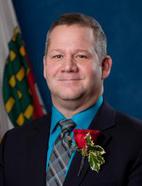Mr. Speaker, last week was Disability Awareness Week in the Northwest Territories, as well as National AccessAbility Week across the country. It is a time to promote inclusion and accessibility in our communities, and to reflect on what we can all do to make sure that everyone is able to contribute to and be a part of community life. With that, I'd like to provide an update on the Government of the Northwest Territories Disability Action Plan 2018/2019 - 2021/2022, which was tabled in October 2018 and is the final deliverable of the Disability Program Review and Renewal Project.
Work is under way across multiple GNWT departments on the five key objectives in our action plan to increase income security and reduce poverty; build awareness and knowledge through education and training; improve transition planning and options; encourage universal design and living options; and improve access and quality of caregiver supports.
The action plan represents a shared vision and partnership between the Departments of Health and Social Services; Education, Culture and Employment; Justice; Finance; Municipal and Community Affairs; Infrastructure; and the NWT Housing Corporation. It is helping our government pursue new avenues and resources available to promote more equity, accessibility, inclusion, and participation in all aspects of economic and social life for persons with disabilities in the Northwest Territories.
Mr. Speaker, we are accountable to persons with disabilities and all residents on the progress on this action plan. While the first update on our actions is anticipated later this summer, I can speak to some initiatives currently under way:
Our government has made investments in increasing rehabilitation supports for children, and is establishing a territorial FASD Adult Diagnosis and Support Program in partnership with the Northwest Territories Health and Social Services Authority.
The Department of Infrastructure has developed an Accessibility Toolkit to assist in implementing accessible design in government office space. This has been tested on a recent renovation project in Yellowknife, and will be used in designing the new airport in Inuvik.
The NWT Housing Corporation has begun its Housing Support Worker pilot in the community of Behchoko. This strengths-based and trauma-informed initiative includes supporting adults with disabilities to maintain stable housing.
The Department of Health and Social Services is reviewing supplementary health benefits programs, as the current program structures do not cover all disabilities. We are also planning for a review of supported living services.
As you can see, this action plan is broad-reaching, reflecting our shared commitment across government to fully address disabilities. I appreciate how each department is taking on implementation and evaluation of their respective action areas and collaborating with disability partners in this important work.
Mr. Speaker, Disability Identity in the North was chosen as the theme of this year's Disability Awareness Week, and it is fitting to recognize and thank our disability NGO partners, including the NWT Disabilities Council, Yellowknife Association for Community Living, NWT Seniors' Society, Hay River Committee for Persons with Disabilities, and the NWT Foster Family Coalition, for their ongoing input and participation. We continue to work with our partners as we implement the action plan to make meaningful and measurable change that will reduce barriers for persons with disabilities.
While we work hard on making change, we can also celebrate what is already happening to encourage more inclusive communities across the Northwest Territories. On May 31st, I hosted the annual Disability Awareness Minister's Tea and was pleased to announce the winner of the 2019 Minister Responsible for Persons with Disabilities Award, Mr. Dean McLeod of Aklavik. Dean has been a committed resident of Aklavik for 47 years and a strong advocate for persons with disabilities in order to ensure inclusive participation in his community. Mr. Speaker, his dedication and his passion as the community recreation coordinator and as an active community volunteer have made a significant difference in the lives of Northerners.
We also recognized Tina McNeil of Fort Smith as this year's NWT Disability Council Community Champion, and the Hamlet of Aklavik as this year's Human Rights Commission Corporate Champion.
All of us have roles to play in promoting inclusion and accessibility in our communities. I look forward to seeing the progress we achieve over the life of our action plan, together with our partners, to improve the lives of NWT residents living with disabilities. Thank you, Mr. Speaker.
